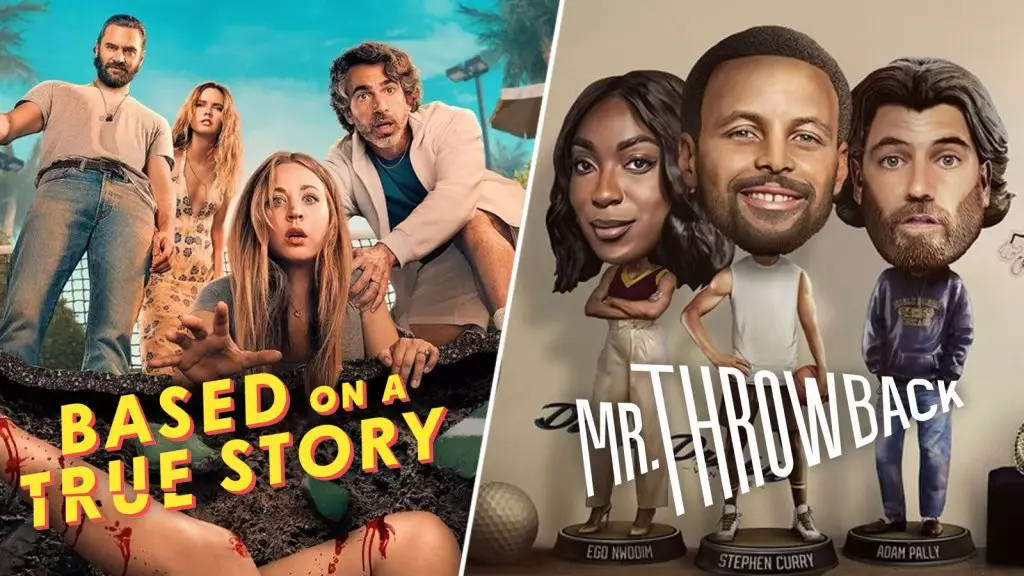In a move that has left fans and industry insiders with raised eyebrows, Peacock has announced the cancellation of two intriguing shows: *Based on a True Story* and *Mr. Throwback*. While the streaming service continues to expand its content library, the abrupt termination of these series raises questions about the criteria used in determining the longevity of its programming. This decision reflects a troubling trend in the television landscape, where innovative narratives are often sidelined without sufficient justification.
*Based on a True Story* was a refreshing take on the crime genre, merging satire with authenticity. Starring Kaley Cuoco and Chris Messina, the series dissected America’s insatiable fascination with true crime through the lens of a beleaguered couple who stumble upon a notorious serial killer. This narrative choice exemplified a daring leap into humor—a rare commodity in a genre typically dominated by darkness and dread. In its second season, the show pivoted to explore domestic life and societal pressures, yet this evolution was evidently not enough to secure its place in Peacock’s portfolio.
Meanwhile, *Mr. Throwback* offered a unique blend of mockumentary and nostalgia, focusing on an underdog memorabilia dealer who yearned for redemption through reconnecting with NBA superstar Steph Curry. This concept held rich potential for humor and heartfelt moments, encapsulating the human experience of striving for something greater. Despite its promising premise and a talented cast headlined by Adam Pally, the series fell victim to an unfortunate fate, with potential left untapped.
The Impact of Cancellation on Creative Freedom
The quick lifespans of these shows signify larger ramifications for creative talent in the industry. Writers and creators are now faced with the daunting reality that even innovative concepts may not find the necessary breathing room they require to flourish. Craig Rosenberg’s vision in *Based on a True Story* was not only fresh but also opened doors for the exploration of deeper societal themes masked within humor. When shows like these are abruptly cut, it sends a discouraging message to creative minds attempting to break the mold of traditional storytelling.
Producers and studios must reconsider their calculus regarding viewership metrics. The current landscape often prioritizes immediate ratings over the potential for programming to develop and grow an audience over time. Perhaps the influence of social media and instant feedback loops has created an environment where audiences demand immediate satisfaction rather than a gradual unfolding of stories—a worrying trend for the future of television.
The Role of Streaming Platforms in Content Creation
As streaming platforms vie for dominance, the allure of rapid viewership metrics can lead to hasty decisions that obstruct the genuine growth of unique content. *Based on a True Story* and *Mr. Throwback* embodied the kind of experimentation that could solidify a network’s identity and differentiate it from the competition. However, in chasing quick returns, platforms may inadvertently stifle the very creativity that makes television thrive.
The departures of these shows signify more than mere cancellations; they represent missed opportunities for innovation and cultural dialogue. As fans, we must advocate for diverse and daring storytelling, urging platforms not to shy away from taking risks. After all, the most memorable narratives often originate from the willingness to delve into the unconventional—something both *Based on a True Story* and *Mr. Throwback* sought to embrace.

